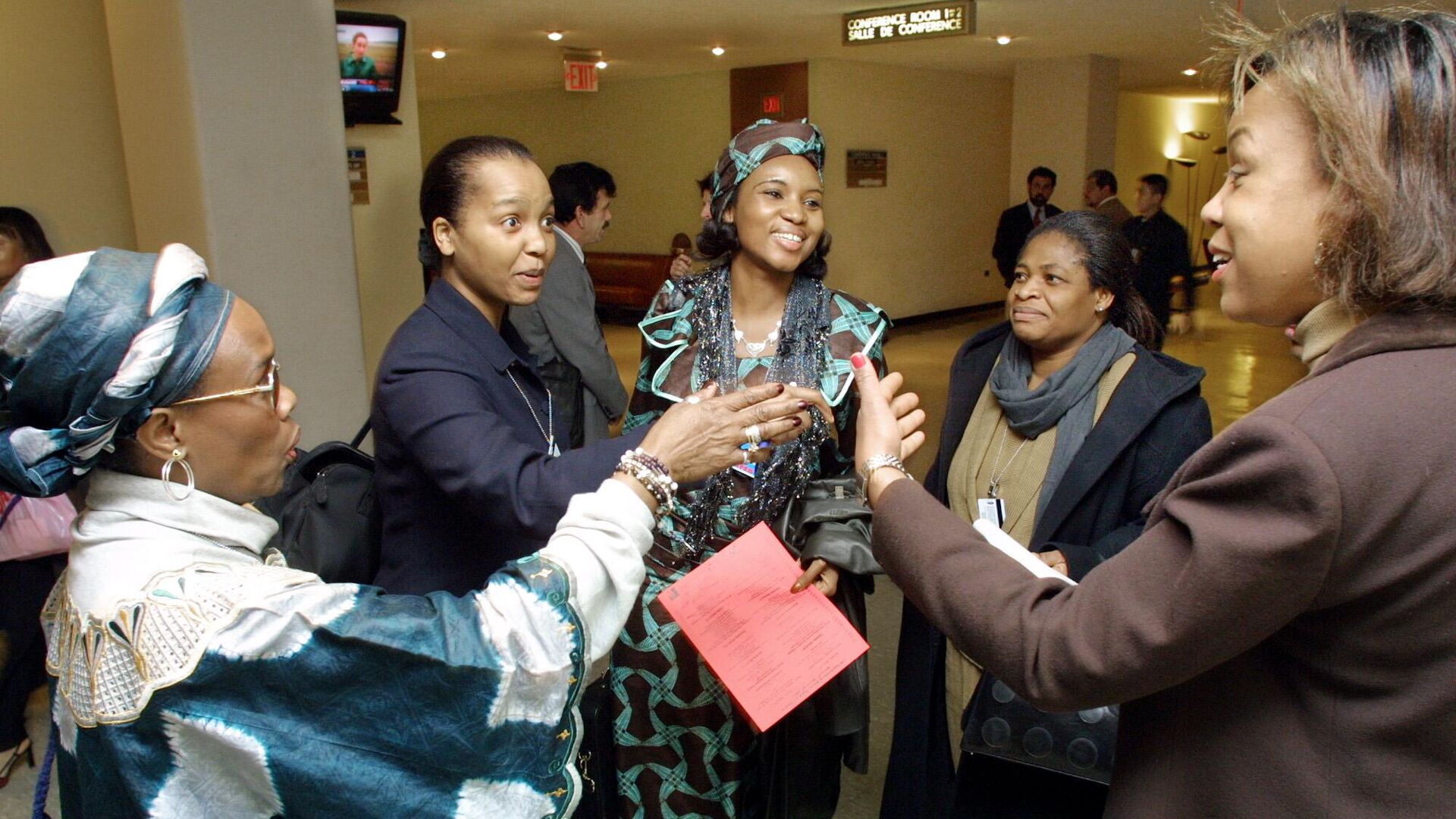
IWD: NITP chair highlights political and economic accomplishments of women
In honor of International Women’s Day, Ms. Lami Ayuba, Chairman of the Nigerian Institute of Town Planners’ Federal Capital Territory Branch, praised Nigerian women for their accomplishments in politics, business, society, and the arts.
The Association of Women Town Planners in Nigeria, a branch of the parent organization, NITP, with chapters all throughout the nation, was established after the decision to recognize these accomplishments by the NITP, according to a statement acquired by our reporter on Wednesday night.
It’s crucial to remember that gender equality is taken into account while celebrating Women’s Day, according to Mrs. Lami. Efforts to make the digital world safer, more inclusive, more egalitarian, and to build a better future—not just for women and girls, but for all of humankind and all life on Earth—are once again being urged to take power on March 8.
It is a moment to take stock of achievements, advocate for change, and honor courageous deeds by regular women who have made tremendous contributions to the history of our nation and the town planning industry.
The AWTPN’s subject, “DigitALL: Innovation and technology for gender equality,” was brought up by the speaker as an example of inclusivity that no one should be denied.
She continued by saying that no one should be excluded from using digital technologies or experience gender-based discrimination.
We must take use of this chance to raise the level of digital literacy among women and girls, introduce young girls to the sector, and defend their rights, the speaker said.
“Let me just say that women in planning will initiate and develop a digital education module for girls in tertiary schools that will not only expose them to digital tools but more importantly stir up their interest in having a career in digital technology and we look forward to partnering with our parent body on this as well as non-governmental organizations,” the statement reads.
She said that by embracing progress in the digital era, female town planners had gone a long way and had made decisions that would leave their marks on history.
The adoption of digital education, access to transformational technology, and use of digital tools in our profession have sped up our work and had a favorable effect on the town planning profession, the speaker said. With the aid of these technological advancements, our professions have contributed and continue to contribute human capital to the development of sustainable cities and communities both within and outside of our professional spheres.
“Women town planners may obtain a better awareness of the environment and influence more educated urban planning choices when they can take use of digital technologies and real-time data.
“Through enhancing accessibility, decreasing congestion, fostering sustainability, and enhancing quality of life, efficient and effective digital technology systems may achieve fairness and satisfy the requirements of society. Overall, women who are knowledgeable about the applications of digital urban planning techniques may help build more livable, inclusive, and resilient communities that better meet the requirements of the whole nation.
“But, as was already indicated, it has become vital to pause and carefully consider those who are left behind before moving on to the next stage. What proportion of women are “digitally literate” and “fully initiated into the digital sphere”? We’re not just talking about having a presence on social media or using our phones; we’re also worried about how we utilize technology at work and how we behave ourselves professionally.



Ok
Okay
Good
Market
Good
Haa
Okay
Good
Hmnn
Yeah
Come
Okay
Was cool
Ok
Yes
Wow
What wrong
Hmmm
Yes naw women should be recognised
Ok
Aite
Ok
Good
Wow
Wow
Hi
Good
Good morning sir how are you
This is nice, especially their advocating for a world free of gender descrimination for both genders….it is very nice.
Although the truth still remains that they have a long way to go in ensuring that a vast majority of women are digitally literate….they cant do it alone, and this is where we have to come in…parents and family members have to suppport their girl children and women as well as the male ones to..in order for them to become digital aware.
They should also reach out to schools and work with them, ensuring that the females are actively engaged in digital learning and other aspects of learning.
Exactly
That’s a good gesture
Have a long way to go
They are really too numerous to mention
Very true
Nice one
Very nice
Really
Ok
International Women
At least women should be given 50 percent space to take part in d government offices
Women are gift from God nd also a blessing
Nice
Yes
Trying
Lovely
That nice
Really
This is a good development. How will someone survive without using technology. It’s part of our everyday life.
That’s a great move
It so good to know they are now been serious with female child
Happy international woman
Happy independent to them
That’s very good ideal
Serious
That’s very good idea
Amazing
Cool
Ok na
But it’s okay even when it’s not and when it is
Cool
hmmm
Very impressive
Happy independent women’s day to all women
Happy International Women’s Day
Cool
To all women
Nice
Impressive!
Nice!
Good
Well
Nitp x-ray
Polite stuffs
Hmmm
Okay
Good
grate.
great.
great
Ok
Hello
Great
Ambloish
Corey
Sad
Okay
Okay
Noted
Ok
Okay
Wow??
This is great. Wow. I live this
Correct. International women God bless you all
Hmm
Hi
They’re such a great gift
This is good
Very impressive
Very good
tell me mama.
Oh
Alright
Good
Noted
Kk
The whomen are planning ahead, that is good
That’s nice
I like the whomen plan
Nice
So nice to hear
Greatly appreciated
Good women
Nah so
Nice ????
Good
Good
ok
Absolutely okay
Yessss
Okkk
Bbhh
Miniechart is the best
Good one
Women town planners
Good work